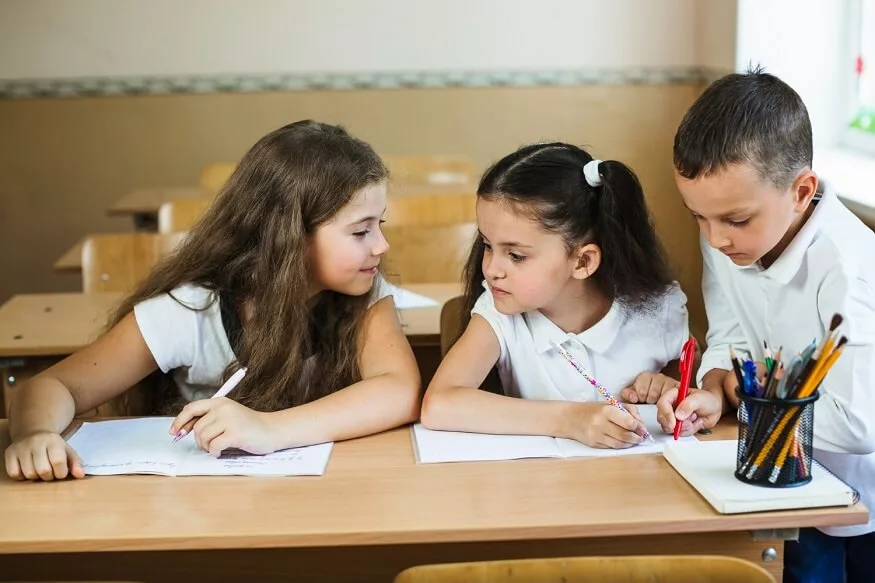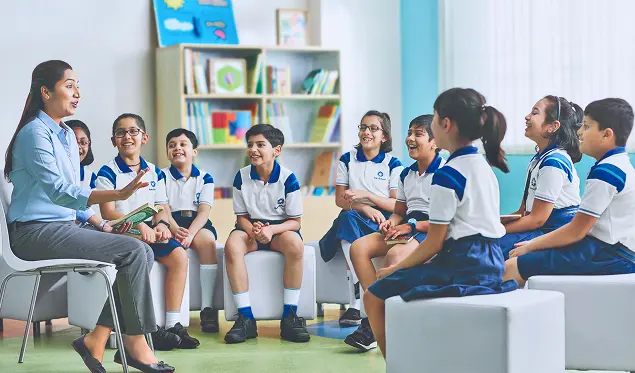In the dynamic landscape of education, the solitary pursuit of knowledge often finds itself complemented by the collective wisdom that emerges from group study sessions. The proverbial saying, “two heads are better than one,” holds a profound truth when it comes to learning. In this exploration, we dive into the world of group study, uncovering the myriad benefits that stem from collaborative learning and the togetherness it fosters among students.
What Is Group Study?
Group study refers to a collaborative learning approach where a small number of individuals, typically students, come together to study and discuss academic topics collectively. Instead of studying in isolation, group study involves shared efforts towards understanding and mastering the material. Participants in a group study setting work collaboratively to review, discuss, and learn from each other.
In a group study, individuals often bring their unique perspectives, insights, and strengths to the table. The study group may focus on a specific subject, a particular course, or even a broader academic goal. The interactions within the group can take various forms, such as discussing readings, solving problems, quizzing each other, or working on group projects.
Group study provides a supportive and interactive environment that fosters a deeper understanding of academic material while promoting teamwork and collaboration among individuals.
Also Read: 10 Tips for Study Motivation for Students
Advantages and Benefits of Group Study
Here are some benefits of group study:
- Collaborative Learning: Group study encourages collaboration, allowing children to share their insights and perspectives. This promotes a richer understanding of the subject matter as they learn from one another.
- Social Skills Development: Interacting with peers in a study group helps children develop essential social skills. They learn to communicate effectively, express their thoughts, and listen to others—skills that are crucial both academically and in everyday life.
- Increased Motivation: Group study can boost motivation levels among children. The shared responsibility of achieving common academic goals can inspire a sense of purpose and drive, making the learning process more engaging.
- Diverse Learning Styles: Children have different learning styles, and a group setting accommodates this diversity. Some may grasp concepts better through discussion, while others might benefit from visual aids or hands-on activities. Group study allows for a mix of approaches.
- Problem Solving Skills: Working collectively exposes children to various problem-solving strategies. Discussing challenges and finding solutions together enhances their critical thinking skills and equips them with a broader range of problem-solving techniques.
- Builds Confidence: Presenting ideas, asking questions, and contributing to discussions in a group setting can build a child’s confidence. Feeling valued within the group fosters a positive self-image and encourages active participation in academic activities.
- Time Management: Group study instils a sense of responsibility in managing time effectively. Children learn to set priorities, allocate tasks, and adhere to deadlines, essential skills that will serve them well in their academic and later professional lives.
- Reinforces Learning Through Teaching: Explaining concepts to peers reinforces a child’s understanding of the subject matter. Teaching others requires a deeper level of comprehension, and this act of teaching can solidify their own knowledge.
- Emotional Support: Group study provides emotional support, especially during challenging academic periods. Children can share concerns, celebrate successes, and offer encouragement to one another, creating a positive and nurturing learning environment.
- Prepares for Future Collaboration: In the real world, collaboration is often key to success. Group study prepares children for future collaborative efforts, teaching them how to work effectively in a team, negotiate differences, and achieve common goals.
In essence, group study for children not only enhances academic performance but also contributes significantly to their personal and interpersonal development. It creates an environment where learning becomes a shared journey, fostering lifelong skills and friendships.
Also Read: Good Study Habits to Develop
What to Keep in Mind For Effective Group Study
Effective group study requires attention to several key aspects to ensure a productive and collaborative learning environment. Here are some things to take care of in group study:
- Clear Goals and Objectives: Define the purpose of the group study session. Are you reviewing specific topics, working on assignments, or preparing for exams? Having clear goals helps keep the study session focused and productive.
- Establish Ground Rules: Set some ground rules for the group study, including expectations for participation, punctuality, and respect for others. Establishing guidelines helps maintain a positive and organised study atmosphere.
- Preparation: Encourage group members to come prepared. Ensure that everyone has reviewed the relevant materials or assignments before the study session to make discussions more meaningful.
- Active Participation: Encourage active participation from all group members. Each individual should have the opportunity to contribute ideas, ask questions, and share their understanding of the material.
- Effective Communication: Foster open and effective communication within the group. Encourage listening to others’ perspectives, asking for clarification when needed, and providing constructive feedback.
- Time Management: Be mindful of time and set realistic goals for each study session. Avoid spending too much time on one topic and ensure that the group stays on track to cover all planned material.
- Rotate Roles: Consider rotating roles within the group, such as a discussion leader, timekeeper, or note-taker. This helps distribute responsibilities and ensures that everyone actively participates in different aspects of the study session.
- Stay Focused: Minimise distractions during the study session. Turn off unnecessary electronic devices, and choose a quiet and conducive environment for studying.
- Respect Diverse Learning Styles: Recognise and respect that individuals may have different learning styles. Some may prefer visual aids, while others may benefit more from discussions. Adapt your study methods to accommodate diverse learning preferences.
- Take Breaks: Schedule short breaks to prevent burnout and maintain focus. Use breaks to relax, refresh, and recharge before returning to the study material.
- Encourage Regular Review: Periodically review and summarise what has been covered during the study session. This helps reinforce learning and ensures that everyone is on the same page.
- Feedback and Reflection: Encourage group members to provide feedback on the effectiveness of the study session. Reflect on what worked well and what could be improved for future sessions.
Also Read: How to Study Smarter, Not Harder Secret Study Tips
Group study becomes a transformative journey where the collective wisdom of individuals propels each member towards success, not just in exams but in the lifelong pursuit of knowledge and personal growth. For more such informative blogs, refer to EuroSchool.









